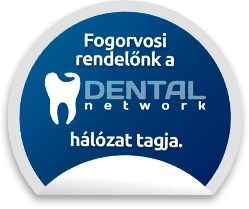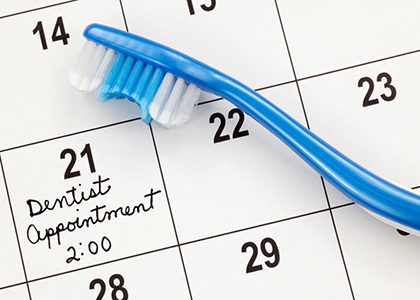Causes and Treatment of Oral Inflammation
Oral inflammation is a common issue with numerous potential causes. How can we differentiate between types of oral inflammation, what treatment options are available, and how can we prevent these inflammations? Our article gathers everything you need to know about oral inflammations!
The oral cavity is far from a sterile environment. Food passes through the esophagus to the stomach, and the air we breathe flows through here, thus exposing this area to many infectious agents. Additionally, everyone has a unique flora of microbes, fungi, and bacteria in their oral cavity, which typically do not cause any problems under normal circumstances.
However, under certain conditions—such as weakened immune systems—pathogens can enter the body and disrupt this microbial balance, leading to various problems and inflammations.
Chronic diseases such as diabetes, anemia, vitamin deficiencies, liver or kidney failure often underlie oral inflammations.
Common Forms of Oral Inflammation:
Aphthous ulcers (canker sores)
Herpes
Stomatitis (inflammation of the mouth lining)
Gingivitis (gum inflammation)
Periodontal diseases, gum recession
Root inflammation, decayed or cavity-ridden teeth
Cheilitis (lip inflammation)
Angular cheilitis (inflammation at the corners of the mouth)
Oral thrush (candidiasis)
Common Symptoms of Oral Inflammation:
In a healthy oral cavity, no abnormalities should be observed. Medical attention is necessary if new and unusual changes appear in the mouth and surrounding areas, especially if they are painful.
Common Oral Diseases
Below, we will review the most common oral diseases, their causes, symptoms, and treatments.
Aphthous Ulcers
Aphthous ulcers are painful, ulcer-like lesions in the oral cavity, typically found on the inner cheeks, tongue, or gums. They are small in size, covered by a whitish, yellowish, or grayish film and surrounded by a bright red halo, causing significant discomfort. They are not true blisters, although they may appear as such. The exact causes are unknown, but they are often triggered by infections, spicy or hot foods, hormonal factors (e.g., menstruation, stressful situations), weak immune systems, mucosal injury, and certain genetic factors.
Types of Aphthous Ulcers:
Minor aphthae: Most common type, usually 2-3 mm, rarely exceeding 10 mm, often appears singly.
Herpetiform ulcers: Very small, 1 mm ulcers clustered together, resembling herpes.
Major aphthae (Sutton's Ulcer): Also known as "giant aphthae," these can reach sizes of 2-3 cm, affecting deeper tissues and heal slower than the other types.
Treatment of Aphthous Ulcers:
Typically, they resolve on their own in 7-10 days without leaving scars and rarely accompany fever or lymph node swelling. Only symptomatic treatment is available, and the healing process cannot be accelerated. If accidental injury from our own teeth, braces, or dental prostheses causes a mucosal injury, consult your dentist!
Mouthwash and pharmacy-grade products can disinfect and alleviate pain.
Local treatment options to reduce symptoms include:
Anesthetic creams or gels for pain relief
Avoiding aggravating factors like acidic and spicy foods
Regular and thorough oral hygiene
Oral pain relievers for severe symptoms
Antibacterial mouth rinses
Herbal anti-inflammatory agents, such as chamomile
Nutritional supplementation, e.g., iron, folic acid, or vitamin B12
Differentiating Between Aphthous Ulcers and Herpes:
Although they may look similar at first glance, there are key differences. Herpes forms actual blisters, whereas aphthous ulcers just resemble blisters. Touching them reveals a bump in the case of herpes. Another distinction is that herpes does not have a red inflammatory ring around it, whereas aphthous ulcers do.
Appearance and Causes of Oral Herpes:
Oral herpes is another common type of oral inflammation, typically caused by Herpes Simplex Virus Type 1 (HSV-1), which 90% of the population carries. Less commonly, it can be triggered by HSV-2, responsible for genital herpes. This virus usually does not cause inflammation and only activates in a small percentage of carriers, forming painful, infectious blisters.
Oral mucosal inflammation can be caused by viral, bacterial, or fungal infections. Medications (e.g., salicylates, antibiotics, contraceptives) and chemicals (e.g., chlorine, fluoride, arsenic) can also cause oral mucosal inflammation. Poor oral hygiene, neglected dentition, and deteriorated general health predispose one to oral mucosal inflammation.
Herpes can appear on the lips, oral cavity, and gums but also on the neck, chin, and eyes. The symptoms include red-edged ulcers that heal slowly over 1-2 weeks without scarring. Accompanying symptoms can include painful lymph node swelling, malaise, fever, and increased salivation. Recurrences at the same site are common. Oral herpes is often referred to as "fever blisters" in common parlance.
Treatment of Herpes:
Herpes generally resolves on its own without needing special medical intervention, except in severe cases or when infants under one and a half months contract it. It responds well to antiviral pharmaceuticals and creams. Maintaining rigorous oral hygiene with regular tooth and tongue cleaning, using dental floss, and mouthwashes is crucial.
Appearance and Causes of Stomatitis (Oral Mucosal Inflammation):
Stomatitis involves an ulcer forming on the oral mucosa. Its most common cause is viral infection, but bacterial infections, overgrowth of oral fungi (Candida albicans), or chemicals (arsenic, fluoride, chlorine), and prolonged use of medications (salicylates, antibiotics, contraceptives) can also be factors. Predisposing factors include chemotherapy, radiation therapy, and various chronic diseases. Common symptoms of stomatitis, besides inflammatory lesions of the epithelium, include lymph node swelling, taste disturbances, and fever.
Oral Thrush Caused by Oral Mucosal Inflammation:
When oral mucosal inflammation is caused by an overgrowth of oral fungi (Candida albicans), it is referred to as oral thrush. It typically develops when the immune system is too weak to prevent the fungus from spreading, which can occur due to antibiotic treatment, nutrient deficiencies, or illness. Several other factors can also predispose one to oral thrush:
Injuries in the oral cavity
Missing teeth or dental prostheses
Smoking
Poor oral hygiene
Systemic diseases
Weakened immune system
Medications, especially antibiotics
Old age
Additionally, during breastfeeding, moisture and warmth under the nursing pad can lead to the development of thrush on the mother’s nipple, which can be transferred to the infant and appear as oral thrush. The infection can also be transmitted from the infant to the mother.
Oral thrush can be recognized by non-removable deposits on the tongue and the inside of the cheeks, typically whitish-gray in color. In very severe cases, the oral mucosa can become inflamed and bleed.
Treatment of Oral Thrush:
Oral thrush can be treated with antifungal agents containing active ingredients like nystatin or clotrimazole. These drugs, known as antimycotics, inhibit the growth of fungi or kill them. It is not advisable to try to treat oral thrush with home remedies, as they can worsen the condition. With timely and consistent treatment, oral thrush is usually quickly manageable. Medical examination can confirm the diagnosis of oral thrush. Doctors can typically recognize the infection at first glance or may take a swab for confirmation.
Appearance and Causes of Gingivitis (Gum Inflammation):
Gingivitis is clearly associated with poor oral hygiene and tartar buildup, which both facilitate the settlement of certain pathogens. These can lead to inflammation and later recession of the gums. Initial symptoms include bleeding gums, followed by swelling and redness of the gums. It can be painful, and if not treated in time, the inflammation can persist, leading to gum recession and even tooth loss.
Treatment can be challenging; receded gums cannot be fully restored, so prevention is key. Home dental care, correct tooth brushing, regular professional oral hygiene treatments, and biannual dental check-ups can help prevent periodontal disease.
Appearance and Causes of Cheilitis (Lip Inflammation):
Cheilitis can develop from hot food or beverages, radiation treatment for oral cavity tumors, or chemicals in cosmetics. If a small painful ulcer appears at the corner of the mouth, often prone to bleeding, it is referred to as angular cheilitis. It most commonly occurs due to a compromised immune system, diabetes, anemia, fungal infection, or ill-fitting dental prostheses.
For the treatment of cheilitis, it's advisable to use a disinfectant and a steroid-containing ointment, which must be prescribed by a doctor.
Prevention and Treatment of Oral Inflammations
Oral inflammations also include decayed, cavity-ridden teeth and root inflammations. Poor oral hygiene, often accompanied by bad breath, underlies these conditions. If facing any tooth or gum problems, consult your dentist immediately!
Oral cavity regeneration and inflammation prevention can be supported by a few simple behavioral rules:
Mouthwash: A strong, antibacterial, or anti-inflammatory mouthwash can form a good foundation for healing. Keeping the oral cavity clean and ensuring that as few bacteria as possible enter any wounds can accelerate regeneration. You can visit a drugstore, but it's best to seek help in a pharmacy to choose the most suitable product.
Oral hygiene habits: Pay attention to brushing your teeth thoroughly twice a day, as a clean, bacteria-free environment aids in the healing of aphthous ulcers. If you suspect an allergy is causing the aphthous ulcers, consider switching to an organic, homeopathic, or SLS-free toothpaste—these products contain the fewest allergenic substances.
Dietary habits: Avoid overly acidic foods and beverages (e.g., citrus fruits, carbonated drinks, energy drinks, etc.) and avoid using strong spices in cooking. It's also advisable to exclude seeds, nuts, and hard snacks from your diet, as they can re-injure the healing area.
Nutritional supplementation: A deficiency in vitamin B-12 or iron can trigger the appearance of lesions, so it's important to supplement these nutrients—using a complex B-vitamin supplement is also a good solution.
Alcohol and smoking: Neither of these harmful habits supports mucosal healing, so it is advisable to reduce smoking and alcohol consumption during this period.
Stress reduction: Emotional factors can also trigger the appearance of aphthous ulcers. Find the best stress-relief methods: engage in sports, meditate, or seek help from a specialist!
If inflammations, ulcers, or plaques in the oral cavity do not heal but continue to grow, unfortunately, the onset of a malignant process (oral cavity cancer) must be considered. In such cases, consult a dentist, oral surgeon, or otolaryngologist immediately!
Suspect oral inflammation? Contact us! Effective treatment of any form of oral inflammation begins with proper diagnosis.
Since our establishment in 1997, we strive to provide your family with the highest standard and comprehensive care, from the youngest to the oldest. Our specialists cover all areas of dentistry, so even complex treatments requiring multiple dental specialists can be handled in-house. Our team's professional and coordinated operation is evident throughout the entire care process—from specialist consultations to administrative tasks.
Do not hesitate to seek advice from our experts at the following phone numbers!
Our clinic’s phone number:
+36 1 445 0011
If the line is busy, please call our main reception at:
+36 1 700 3930





















